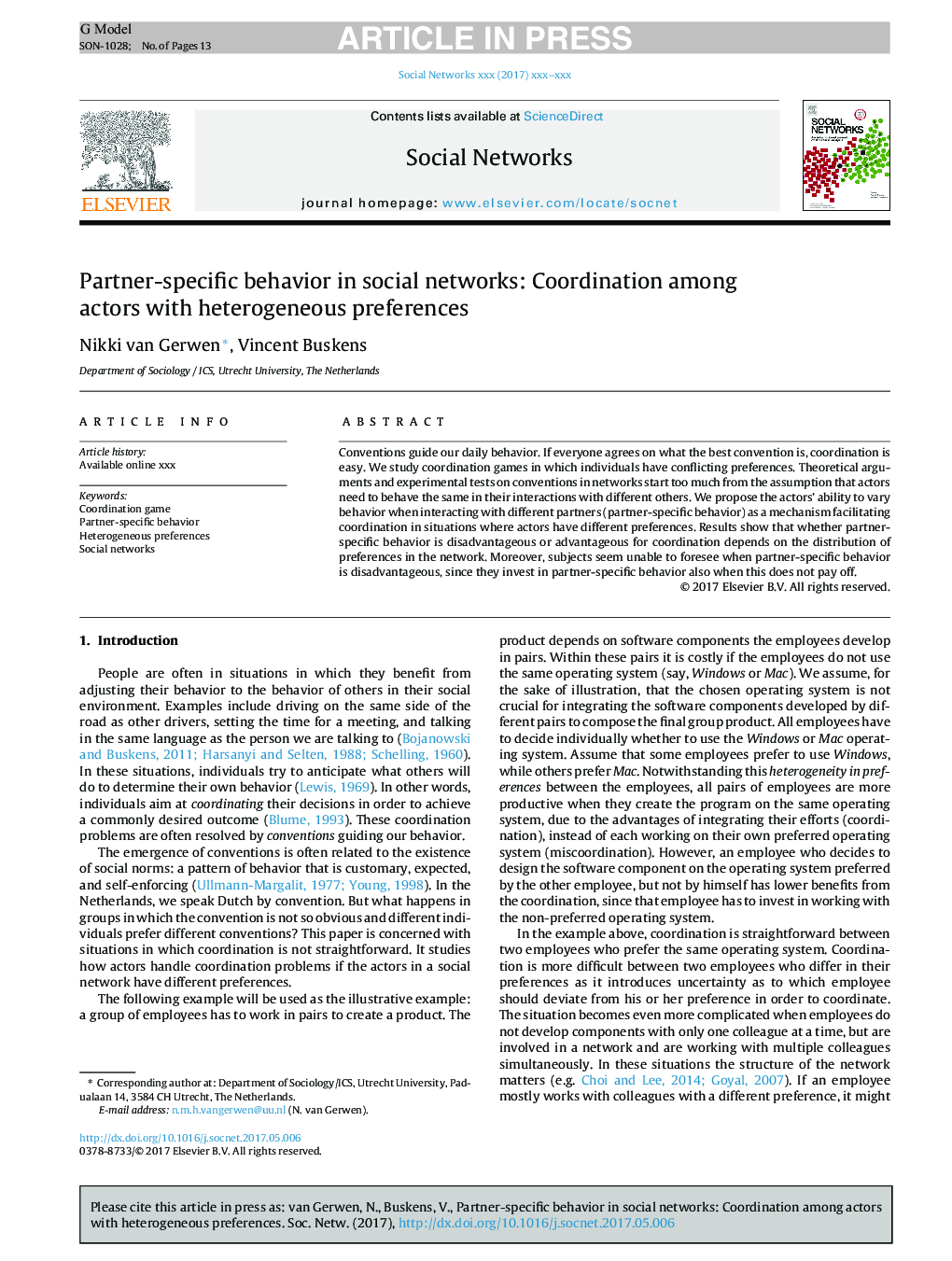| Article ID | Journal | Published Year | Pages | File Type |
|---|---|---|---|---|
| 7538347 | Social Networks | 2018 | 13 Pages |
Abstract
Conventions guide our daily behavior. If everyone agrees on what the best convention is, coordination is easy. We study coordination games in which individuals have conflicting preferences. Theoretical arguments and experimental tests on conventions in networks start too much from the assumption that actors need to behave the same in their interactions with different others. We propose the actors' ability to vary behavior when interacting with different partners (partner-specific behavior) as a mechanism facilitating coordination in situations where actors have different preferences. Results show that whether partner-specific behavior is disadvantageous or advantageous for coordination depends on the distribution of preferences in the network. Moreover, subjects seem unable to foresee when partner-specific behavior is disadvantageous, since they invest in partner-specific behavior also when this does not pay off.
Related Topics
Physical Sciences and Engineering
Mathematics
Statistics and Probability
Authors
Nikki van Gerwen, Vincent Buskens,
